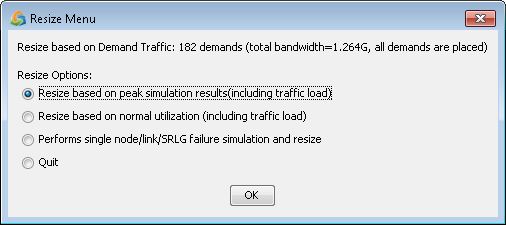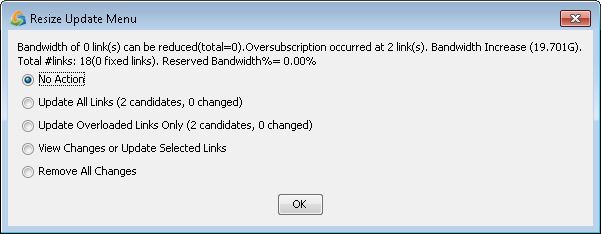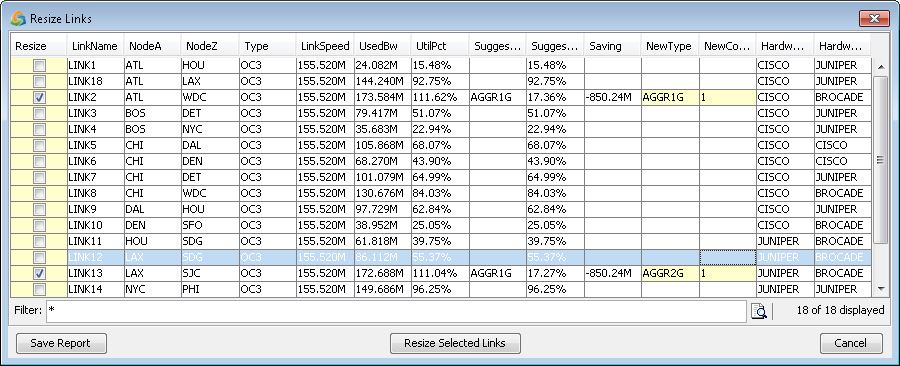ON THIS PAGE
Design Menu: Backbone Design
Resize
The Design > Backbone > Resize option may be used to tune and optimize the current backbone topology. Links can be resized based on normal link utilization or peak link utilization based on failure simulation results. When the resize option is performed, NorthStar Planner replaces links in the network based on the Link Type Candidate in the Tools > Options > Resize window.
Types in Tariff: Valid link types are taken from the current tariff table
AGGR(xGb): Valid link types are based on multiples of 1G with default set to 10G.
Once you have selected the valid link types for the resize, you can choose to resize based on
The peak link utilizations of the latest failure simulation performed
The current link utilization when not under failure
You can also automatically run exhaustive failure simulation for nodes, links, and SRLGs, and then resize the links accordingly.

Make your selection (or select Quit to cancel). Then click the OK button. The following window will provide resize recommendations based on the previously selected Resize options.

The choices are as follows:
No Action
Update All Links: Update all links’ trunk types based on recommendations
Update Overloaded Links Only: Update only the links’ trunk types which have utilization above 100%. In other words, trunk types will only be upgraded to higher bandwidths and not downgraded.
View Changes or Update Selected Links: Manually select which links are to be resized.
Remove All Changes resets the links trunk types back to their original size.

The Resize Links windows allows manually selecting the links to be resized. Once a row is selected, the columns at right are activated so that the trunk type (NewType) and count (NewCount) can be modified if necessary. Then select Resize Selected Links. In the subsequent window, click Quit to exit from the main menu. The trunk types of the selected links are then resized.
Route Paths
Route From Scratch
The Design > Demands > Route Paths > Route From Scratch option removes demand path placements from the network and reroutes all the demands from scratch in sequential order. The Design > TE Tunnels > Route Paths > Route From Scratch option works similarly but for TE Tunnels.
Tuning
With the current paths remaining in place, the Tuning option performs a local optimization of path placement on the network. If there is sufficient bandwidth, path placement is performed on the network for the selected paths:
Tune All Paths
The program will try to place unplaced demands and improve on already placed paths.
Tune Unplaced Paths
The program will try to place only unplaced demands.
Restore
Resets the paths of demands as specified in the input demand file.
Remove
Removes all placed demands from the network.
Remove Configured Paths
Removes all configured paths (Path Select, Path Required) and reroutes them dynamically.
